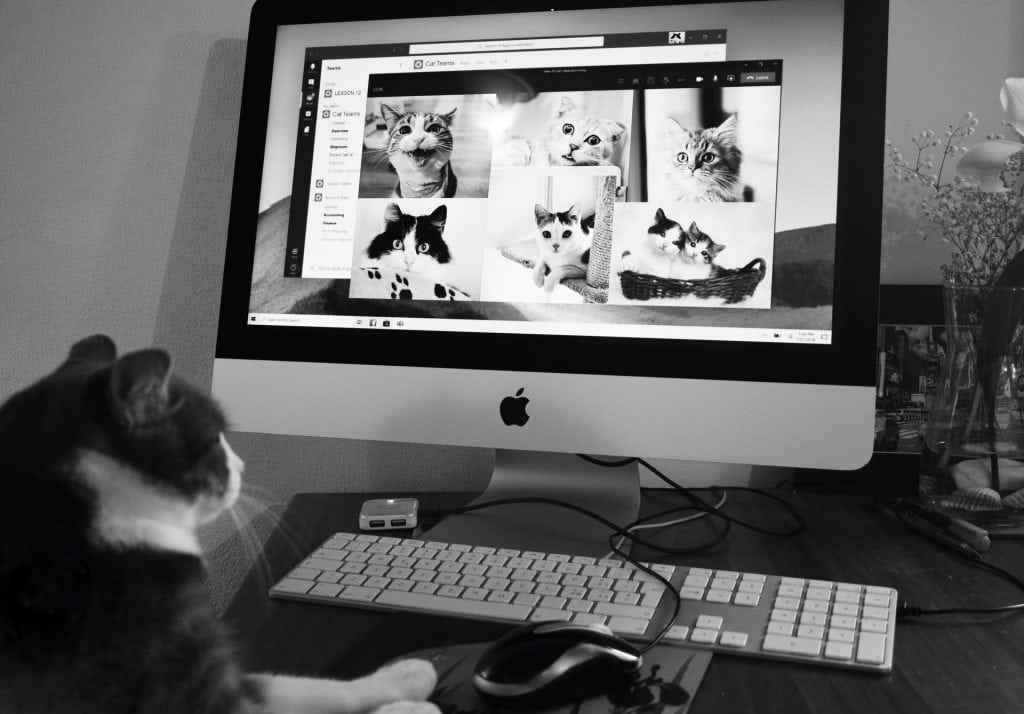What are the biggest challenges of working from home? Well, at the moment we can name a lot of them, but probably they are more linked to the pandemic situation rather than remote working.
If we think for example about work-life balance or feeling lonely and isolated, these should begin to change once we go back to ‘normal’ and we can go out and have face-to-face relationships again.
But looking into the future, all the research shows that remote working is here to stay. However, there is one hurdle that companies, teams, and organisations will have to instil and devote more time and energy to across the board: TRUST.
Why trust?
At the moment we are all working from home because there are no other options, but what will happen once we can go back to the office? Will you trust your team to stay at home? Equally important, will they trust each other?
“How do we know if people who are still working from home are actually working?”
The response to this question underpins lots of research into human psychology around trust and belief.
It is essential for leaders to pay attention to the question, their reaction, and their management response to it, as it has the potential to make or break their team(s) and organisation.
This should make us think about how much trust there is in our teams. Not only if you trust them, but if they actually trust each other.
Trust is critical, and it can affect your company in many ways:
- If people in the team don’t trust each other, they won’t work well together, affecting their performance.
- People will try to hide their mistakes instead of just admitting them and try to rectify them.
- They won’t be able to learn from each other, so they are bound to make the same mistakes.
- It can develop into competition and rivalry, which can bring negative feelings to the rest of the team.

Photo by Chris Barbalis on Unsplash
Just think back and remember if you have ever worked with someone you didn’t trust and how difficult this made your job?
At the same time, if you don’t trust them, you will feel the need to control what they do a lot more. We have seen a lot of companies increase their monitoring activities, but these measures are proven to be counterproductive.
For example, this survey shows that for those reporting high levels of monitoring (more than 4 on a 5-point scale), 49% were often or always anxious when carrying out their job.
They will sense your mistrust towards them, which will bring negative feelings, and increase trust issues. This can affect future performance and result in many problems.
So, instead of wasting your time on fixing every little issue, why don’t you just focus on solving the root problem? Build a culture of trust.
How to build a culture of trust
As in any other relationship, trust is difficult to gain but really easy to lose. Building a culture of trust is not a one day job, it is something that you nurture every day.
Gartner research shows that organisations with high levels of trust increase their average employee engagement by 76% over those with low levels of trust.
Also, trust starts with you. If you want people to trust each other, they first need to see that you trust them.
“Your words and deeds must match if you expect employees to trust in your leadership.” – Kevin Kruse
Here are some questions you should ask yourself:
- Do I genuinely care about people every day?
It is not enough to say you care, you have to show it. For example, if you ask how people are feeling but then don’t pay any attention to their answers, just may as well avoid asking altogether.
When you genuinely care about other people, your attitude and your behaviour towards them will change.
- Am I giving them space to gain my trust?
If you are always on top of them, they won’t be able to show you if you can trust them or not. You need to give them an opportunity to show you they are trustworthy.
For example, allow them to work on their projects, take their ideas into consideration, assign them a project and let them figure out how to achieve it.
- Can people really trust me, or do they have to tiptoe around me?
People need to be able to trust you every day, and you need to show them that they can come to you when they need to, not only when you want them to. We all have bad days, but this can’t affect the way you interact with your team.
- Am I open and honest with them?
Being honest applies to everything. If the company is going through a rough patch, you need to make everyone aware of it, so people can understand future decisions or even participate in them.
As little as “I am having a bad day” to “We are in a position where we may need to let go of people”—honesty is the right path to follow if you want to build trust among your team.

Photo by Mimi Thian on Unsplash
- This article originally appeared here.
- Optimist Performance LinkedIn
- Listen to the podcast with Ollie here.
